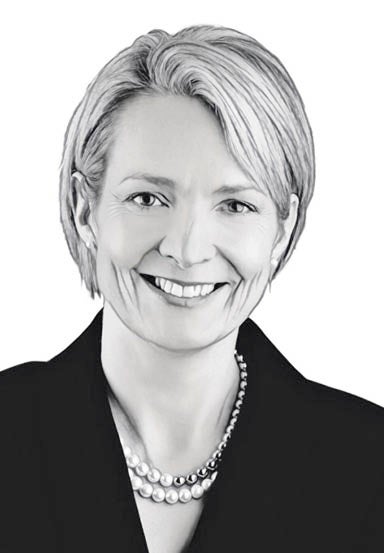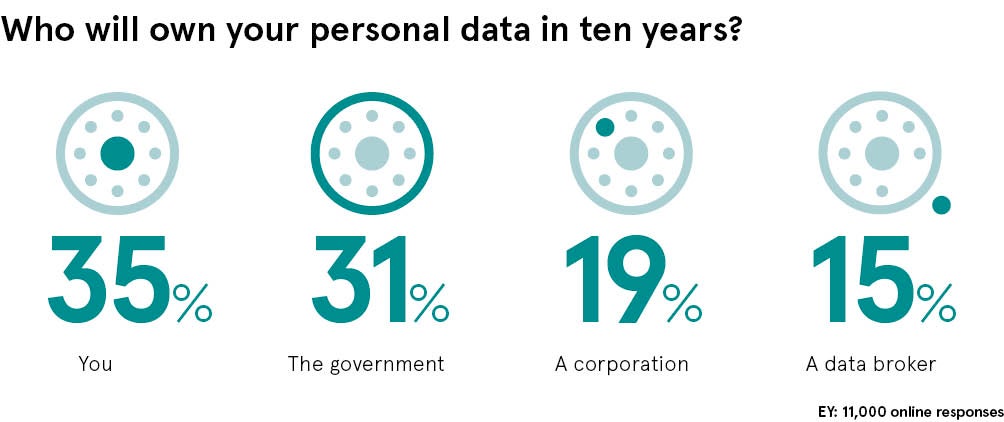
Helen Merriott, Partner and markets leader Retail and consumer products EY UK and Ireland
These days millions of households are using smart speakers to order their groceries. These clever artificial intelligence (AI) hubs can handle anything from playing songs to answering random questions. Shopping lists are also a speciality. Shout out “add flour and a dozen eggs” to the device, after the trigger word, and the list is updated.
This December was the tipping point, as home AI speaker units topped the Christmas gift charts. Purchases made through smart assistants soared, and could leap from $2 billion to $40 billion by 2022 in the UK and US. A new consumer retail channel has exploded into life.
Voice-assisted shopping is one ingredient in a deluge of new technologies and ideas hitting retail. Virtual reality, for example, is being used in the automotive industry to enable customers to browse different models of cars. A parallel technology is augmented reality (AR), which blends real world and computer-generated imagery. Homemakers can use an AR app on their smartphone to see how furniture would look in their house.
The cumulative effect is that consumer shopping habits are being reinvented. The impact is so profound; brands are asking what will the consumer of the future look like. Companies with the right answers will be able to ride a multi-billion-pound wave of demand.
To explore the new era of consumption, EY recently embarked on a future-gazing mission called FutureConsumer.Now. Two-day “hacks” are being held in five key global cities: London, Berlin, Los Angeles, Shanghai and Mumbai. So far EY is just past the halfway point, and this programme brings together clients, futurists, EY sector experts and industry leaders to examine the changes that will reshape retail over the next decade or more.

On the agenda are fundamental questions. How will people shop, play and work? How will they live, eat, stay healthy, move around and connect? And what are the implications of more than 100 change drivers, from the applications of AI and robotics to wider shifts in social structures and consumer aspirations?
For two days these thinkers analyse the future of consumption, through interviews, structured discussions and debates. So far, the sessions have unearthed a treasure trove of insights into forthcoming changes. The food industry provided a strong example. App-driven deliveries and subscription meal services are soaring in popularity. This is merely the start.
“Smart fridges have been around for a while,” says Helen Merriott, market leader for retail and consumer products at EY in the UK and Ireland. “Imagine a personal AI which knows what’s in your fridge and, if you give it permission, knows your personal history and what your children like to eat on a Tuesday. The AI will track calories, protein and carbohydrate intake, and vitamin balance. Food orders can be made automatically taking all of these needs into account.”
The implications are extensive for major retailers. Supermarkets depend on in-store promotions for significant revenue. The emergence of automated ordering will diminish the prestige of the gondola ends and checkout proximity. The associated income streams will disappear.
As AI assistants absorb a greater share of the shopping duties, the structure of retail will change. “We’ll see a bifurcation of the market,” says Ms Merriott. “Basic goods will be ordered pre-emptively by digital assistants. You’ll simply forget about things like washing-up liquid and paper towels. Consumer focus will be reserved for the things that they really care about such as luxury brands and those offering an experience which consumers love.”
This bifurcation means brands need to position themselves carefully. Mid-market brands may be lost in the transition, undercut by low-cost, white-label rivals. Elevate a brand into the luxury category and there is the opportunity for an uplift in sales as the consumer gaze intensifies.
The role of shops will shift. “We know that 70 per cent or more of purchases involves a store at some point,” says Ms Merriott. “That doesn’t mean purchase. It means consumers often like to swing by a store to check out the brand. I will still go to a store to try on a trench coat. Do I look good in classic tones or neon – that’s part of the fun and part of the theatre. So physical locations won’t go away. They will have to become more special for brands.”
The design of stores will change. The layout of city centres will be critical, moving from fulfilment to a leisure experience.
Data-sharing will rise in importance. Consumers will realise the value of their data and be willing to open up their shopping experiences with others in exchange for rewards from the brands that matter to them.
FutureConsumer.Now looked at a number of ways brands can make the most of this new dynamic in the data industry.
The speed of change may prove shocking to many brands. The IT world is governed by Moore’s Law, the prediction by Silicon Valley pioneer Gordon Moore that computer chips would double in power every two years. The world of the consumer is now gripped by exponential change of its own. Look at the list of tech unicorns, companies with a billion-dollar-plus valuations, in the retail space. There are companies barely five years old with unicorn status. Seismic changes are happening faster and faster.
The headline conclusion of FutureConsumer.Now is that brands must do their own future-gazing and build a strategy to thrive in the new conditions.
“We want to talk to our clients about how they do this,” urges Ms Merriott. “We are known for audit, but EY offers deep industry expertise. We love working with ambitious founders and leaders on growth and strategy. Our track record is strong. In the past we’ve helped global brands emerge through our EY Entrepreneur of the Year programme. Now we want to talk to retailers, from startups to big corporations, to help them envisage the world of tomorrow.”
Research by EY reveals 75 per cent of executives say their traditional value-creation tactics are being disrupted. The retail industry is being reinvented as customers change habits faster than ever before. It is vital to prepare now for the changes to come.
For more information please visit
Join the debate at
#FutureConsumerNow





